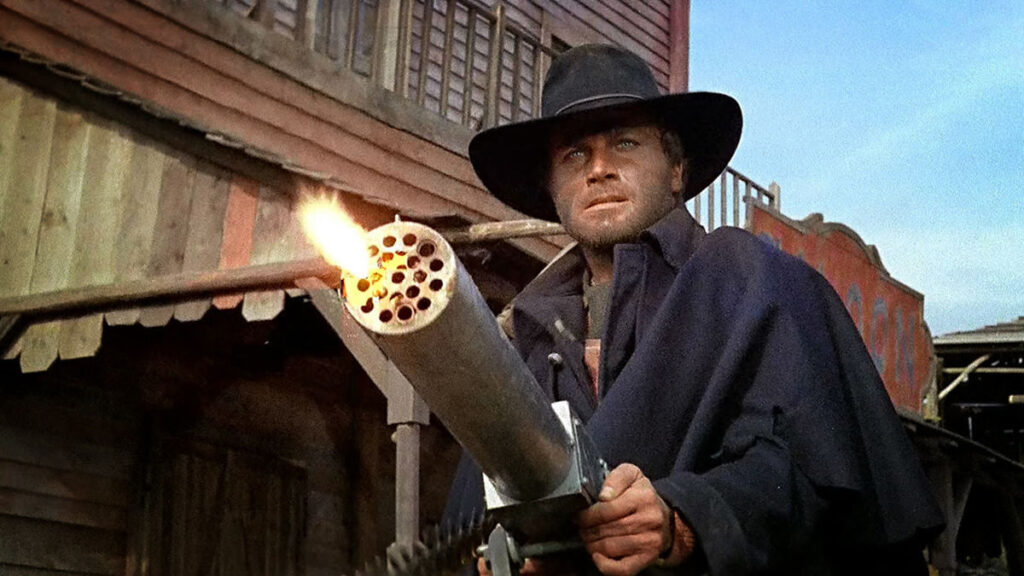
During the opening of Django & Django (2021) Quentin Tarantino reveals that after completing his film Inglourious Basterds (2009) he contemplated writing a book on the westerns of Sergio Corbucci. Tarantino appears to have gotten as far as commencing his research for this proposed book before abandoning the project. What Tarantino learned and observed about Corbucci and his films became Django & Django.
Although Django & Django presents itself as a film about Sergio Corbucci it is actually far more instructive as a film portrait of Quentin Tarantino. Tarantino, the former video store clerk, is a master at commodifying himself and his work. In Django & Django Tarantino continues to sell himself as an unpretentious, anti-intellectual aficionado of all things film. The fact that Tarantino’s knowledge of and insights into Corbucci’s films amounts to less than the filmmaker’s Wikipedia article is beside the point. What matters is that an Oscar winning filmmaker with humble beginnings is telling his followers what to watch and how.
It isn’t hard to see why Tarantino relates to Charles Manson since he too presides over his own kind of cult. Tarantino’s admiration for Corbucci is obviously limited to the Italian auteur’s techniques and not his Leftist politics. Tarantino can discuss violence eloquently enough but when it comes to social or political subtext he’s forced to employ broad stokes via buzz words and grotesque generalizations. The fringe benefit of Tarantino doing a film about Sergio Corbucci is that more people are likely to seek out these westerns and broaden their own intellectual horizons.
Where Django & Django actually is interesting is in the interviews with leading man Franco Nero and Corbucci’s frequent assistant director Ruggero Deodato. Nero’s insights are almost exclusively anecdotal and provide a rough portrait of Corbucci’s character. Deodato, on the other hand, discusses Corbucci’s directing style and methodology. The contributions of these two titans of European cinema to Django & Django are limited so that there is more room for the self-aggrandizing Tarantino. If Deodato and Nero were more the focus of Django & Django the film could actually pass as something resembling a documentary about Corbucci.
